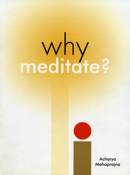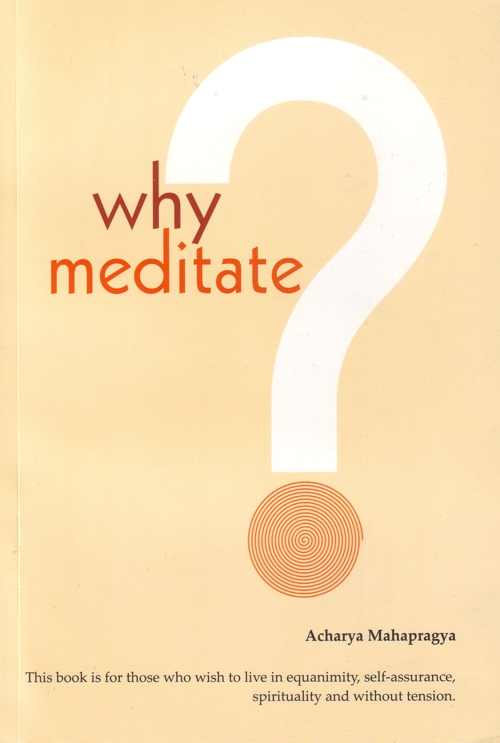
 Today, neurology has developed greatly. Many scientists today are also working on consciousness. According to neurology, there are three levels of consciousness:
Today, neurology has developed greatly. Many scientists today are also working on consciousness. According to neurology, there are three levels of consciousness:
- 1. Conscious mind
- 2. Unconscious mind
- 3. Super (higher) conscious mind
To think is the function of the conscious mind. On this level of mind, we think and imagine. It is the job of the waking state of consciousness, the waking mind. Those who live on this level consider thinking to be the highest activity. But thinking is not the highest function. Many ugly thoughts also arise from thinking. While thinking has its place, there is no extra value to thinking.
The second level of the mind is the unconscious mind. It is the centre of the emotions and behaviour, where our behaviour is determined. All our emotions are linked with it. Man usually lives in the world of emotions.
Now we should analyse the root of all problems: from where do they arise? On comparing the conscious mind and the unconscious mind, we find them to be the levels of sensory consciousness. Our problems are related to our behaviour, and our behaviour is linked with our senses.
The third level of mind is Super (higher) conscious mind. Here, problems are solved. It is the level of the world beyond the senses. Its function is knowingness, i.e. only knowing. The word only is used for the world beyond the senses, for the super conscious mind. If one can understand the fact of 'only knowing' [& hold on to the word 'only], and if this can be practiced, it can free one of millions of mental & emotional problems.
The practice is very difficult, but it is important to correctly grasp the word 'only'? What is the purpose of Preksha Meditation? Why? A brief answer to this question is - The development of that consciousness which is linked to the word 'only, that consciousness to which nothing else is linked - 'only listening', 'only seeing', 'only tasting'. Once the practice of 'onliness' is established, there will be no room left for attachments & aversions to arise. Where 'onliness' is absent, there attachment and aversion exist. This 'onliness' is the purest form of knowing. It is the (super) higher consciousness. One of its results is intuition. The power it gives us is the ability to know the ultimate truth, without the help of the senses or the mind. I want to give illustration in this context. Acharya Bikshu's intuitive power was awakened. There is not just one example, but there are many examples to reveal this. On one occasion, a man came to him & asked: "How many legs does a horse have?" Acharya Bikshu counted "one, two, three, and four" & then replied "Four." The man said: "I had heard that you are a genius, even a small child would have replied to such a question immediately, but you have taken time in counting, one, two, three & four."
Acharya Bikshu said: "If I had answered this question immediately then your next question would have been "How many legs does a centipede have? Then I would have had to think & you would then get the chance to say, Answer this question immediately, so that we can know what kind of genius you are!"
The man admitted that he had indeed come, planning thus. How could his forethought become known to Acharya Bikshu? He neither told Acharyaji, nor was it discussed, yet how did it come to be known? When the intuitive power is awakened, even the untold is automatically known as 'Pratibhagyan'. In the words of Acharya Haribhadra & Hemchandra, 'Pratibhagyan' is neither Keval Gyan (perfect knowledge) nor Shrut Gyan (literal knowledge). It is neither day nor night, it is the knowledge of the dusk. It is knowledge in the middle category, therefore things can be previously known in Pratibhagyan. Someone would say: "Tomorrow my brother will come," without getting any letter or phone call from him. Just a feeling comes from within and this becomes true. This is Pratibhagyan. What are the causes of our problems today? We are not putting in any efforts to awaken and develop our consciousness. We are only entangled in the lower levels of consciousness, and this is what further complicates our problems. If we try to awaken the higher levels of consciousness then our problems may be solved, as there, attachment & aversion are left behind.
Life in today's world is surrounded by many difficulties. If one problem is solved, then the next is waiting. Why is this wheel of difficulties rotating? Why is this maze before us? It is because we are not setting out in the direction of progress of higher consciousness. We have to make use of sensory perception and live on the land of practicality. We cannot quit our habits all of a sudden, as also we cannot contravene the ensuing problems. But if we firmly fix our destination as progress to the world beyond sensory consciousness, a great deal of change can be expected. Many of our problems may then appear minor. Those problems which today appear to the stressful and fraught with tension can actually be transformed. Until the senses are stabilized, the development of the world beyond sensory consciousness is not possible.
People practicing Preksha Meditation should be very clear about their destination, i.e. where do we want to go? Where do we wish to reach? Our goal should not be so small as to attachment only physical well being. This is not our final aim. Our main goal should be the correct employment of sensory perception, and the development of the consciousness beyond the senses. When the latter develops, our whole world will change, our entire vision will change. If this vision of ours is clear, then our purpose and perspective of meditation, too, will change. We cannot dedicate ourselves to meditation until this clarity of vision is obtained.
The point of concentration is that we stabilize our minds upon one object for five minutes, 10 min., half an hour, 1 hour and 1 and a half hours. In the language of the ancient world, if one can concentrate on an object for "three time periods," - 24 minutes constituting one time period - then the higher consciousness awakens of its own, and that changes the complete form and appearance of the world. But you can be sure that without the restraint of sensory consciousness, and the control of the mind, extra-sensory consciousness cannot be developed. The obstructions of the outer world are senses & mind, but the world beyond the senses is within. If the doors are locked, how one can reach within? Everyone cannot be Mantungsuri who opened up 44 locks without even touching them and came out. The locks of the outer world will break only when our concentration is greatly deepened. If we possess the strength of one-pointedness, then the locks will get broken. Then the inner consciousness (the world beyond the senses) will get a chance to emerge. Lord Mahavira said that our consciousness could come out of our body from any direction: from behind, or from the front, from the right or left, or from above. There are five doors that serve as exits for our inner consciousness to come out of the body. But there is so much instability within the sensory world that the inner consciousness does not find a way of coming out.
Preksha Meditation aims to develop the internal consciousness beyond senses. Preksha Meditation practices to thoroughly employ the mind & sensory perception. We should be able to clear all the obstructions and control these, then there would be no difficulty for the inner consciousness to come out. Indeed, it would then merrily step out. The nature & purpose of meditation should remain clear to us. This clarity allows us to develop an interest in it. Then the resolve to embrace the practice of meditation springs within us. Progress in the field of meditation requires a lot of effort. The question is how well a person can manage his/her time, and how much time he/she can spend to practice concentration. It is not enough to remain stable only while you are practicing meditation. Even when you are free & not in a session of meditation, you should practice restraining your senses & mind, and try to reduce instability. If this kind of deep engrossment & complete determination is established, then we can truly reach our destination & can experience the awakening of the inner world, i.e. the world beyond the senses. Once you gain that experience, there would be no need for you to receive any sort of teaching or advice, there would no longer be any need to say anything. That very experience will spur you ahead. If your surrender to the practice is complete, and if with the same deep engrossment you continue your practice, then progress & consciousness of the world beyond the senses will happen naturally. That progress will surely make you experience a new world.
 Acharya Mahaprajna
Acharya Mahaprajna
 Copyright by Acharya Mahaprajna ©2005
Copyright by Acharya Mahaprajna ©2005